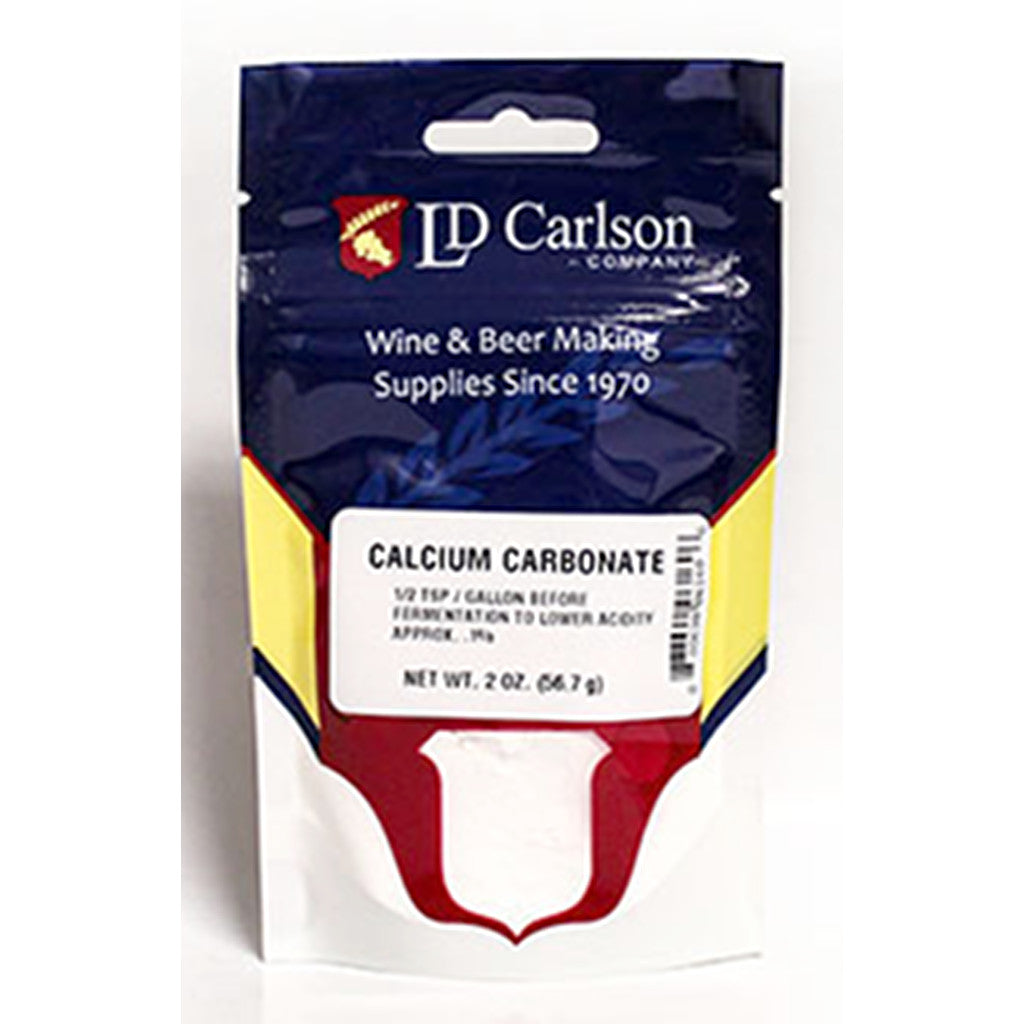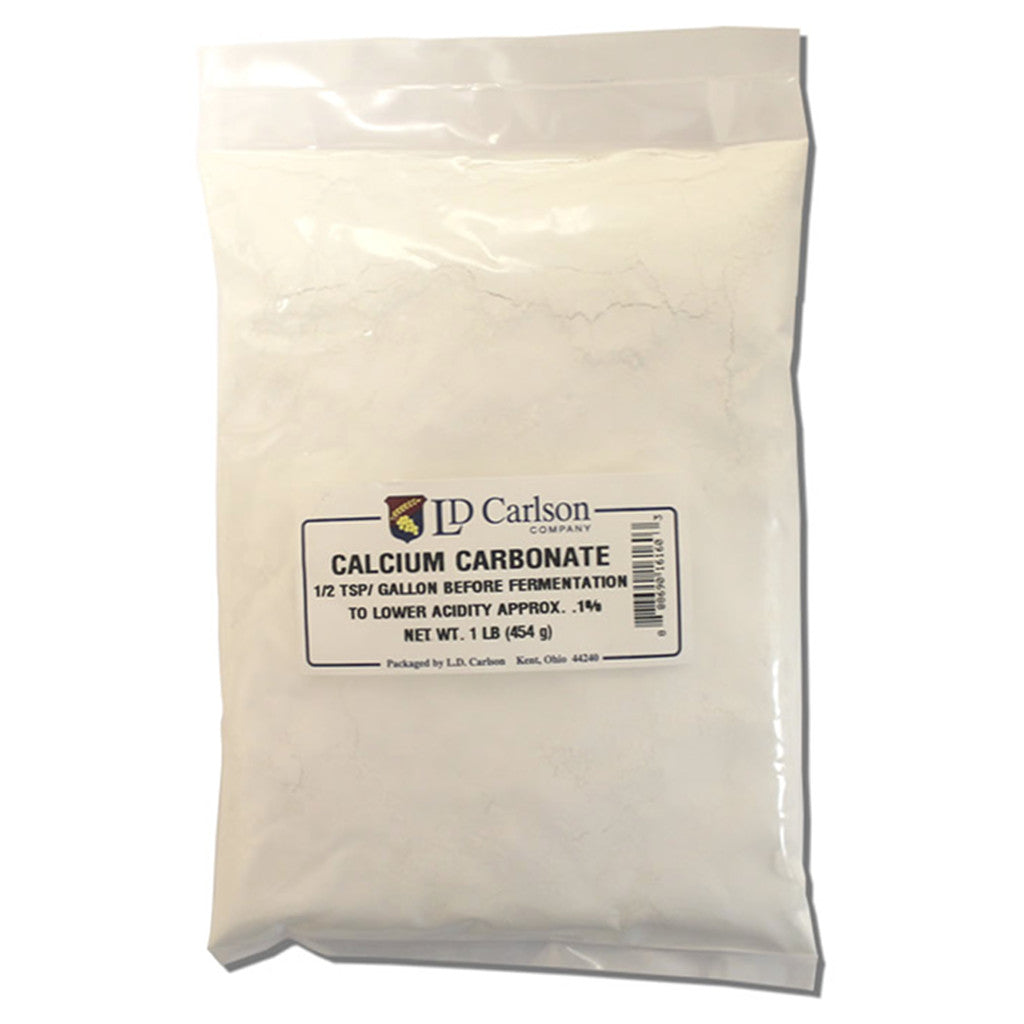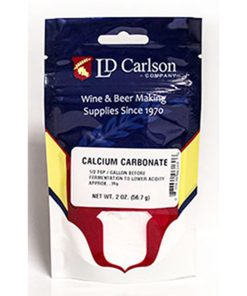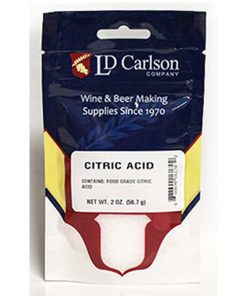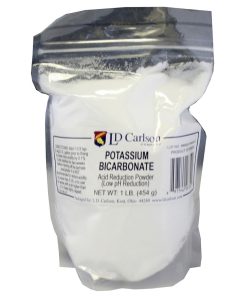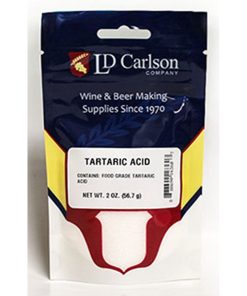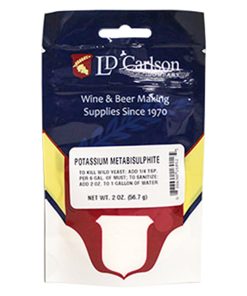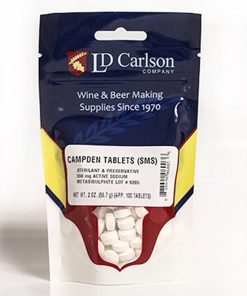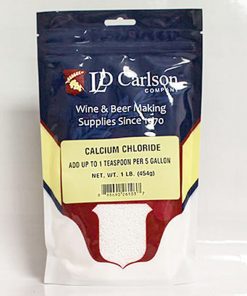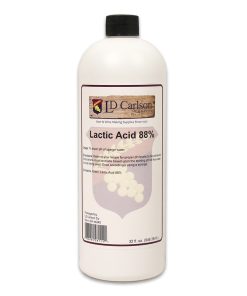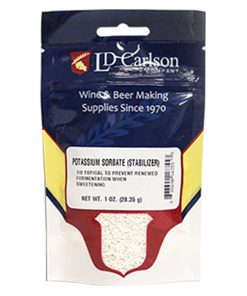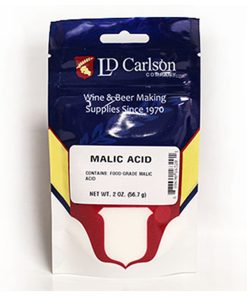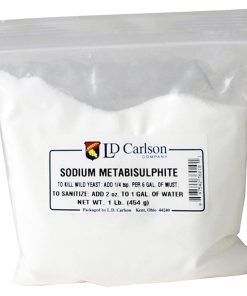Calcium Carbonate LD Carlson
$ 1,39 $ 1,00
- Description
- Details
- Directions
-
Calcium Carbonate (CaCO3) is a naturally occurring mineral that is used in wine to lower the acidity and increase the pH. It combines with tartaric acid and creates calcium tartrate crystals that precipitate out of the wine over a period of several weeks.
-
Form: Powdered Chemical Composition: Calcium Carbonate (CaCO3) -
– The exact amount of calcium carbonate needed will vary in every recipe and will depend on many factors including the acid level of the wine or ingredients used
– General application to reduce wine acidity: 1/2oz per 5 US gallons (14.2g per 18.9L)
– 1/2 tsp (2.5g) of calcium carbonate will lower total acidity of 1US gallon of must approximately 0.1 %
– It is not recommended to use more than 0.4oz or 4 tsp (11g) per 1US gallon or to reduce the acidity by more than 0.4% with calcium carbonate
– It is more effective to use calcium carbonate to de-acidify fruit must prior to fermentation
| Size | 2oz, 1lb |
|---|
Fast Shipping and Professional Packing
We have a range of shipping options thanks to our long-term partnership with UPS FedEx DHL. Our warehouse personnel will pack each item according to our strict specifications. The goods you send us are checked thoroughly and securely secured prior to shipment. Every day, we send thousands of packages to customers across many countries. This is a sign of our commitment to be the largest online retailer globally. Both Europe as well as the USA have distribution and warehouse centers.
Please note that orders with more than one item will be given a processing time according to the item.
Prior to shipment, we will examine thoroughly the items you've purchased. Most orders are shipped within 48 hours. The delivery time should be between 3-7 days.
Returns
Due to multiple entities which include the factory as well as the warehouse, we cannot fully manage stock. So the actual stock may change at any time. Be aware that it's possible that your order could run out of stock even after you've placed your order.
Our policy runs for 30 days. If you have passed 30 days without a trace since the purchase, unfortunately we can't offer an exchange or refund.
In order to be eligible for a refund, your item must be unused and in the same condition as you received it. It should also be returned in the original packaging.
Related products
Acid Testing Kits
Wine Making Chemicals
Wine Making Chemicals
Wine Making Chemicals
Wine Making Chemicals
Chemicals and Additives
Wine Making Chemicals
Wine Making Chemicals
Chemicals and Additives
Wine Making Chemicals
Wine Making Chemicals
Campden Tablets (Potassium Metabisulfite), 2oz – 100 Tablets LD Carlson
Wine Making Chemicals
Wine Making Chemicals
Wine Making Chemicals
Acid Testing Chemicals
Milwaukee pH 7.01 Calibration Buffer Solution, 20mL Milwaukee Instruments
Wine Making Chemicals
Acid Testing Chemicals
Phenolphthalein Color Indicator Solution (1%), 1/2oz LD Carlson
Chemicals and Additives
Wine Making Chemicals
Wine Making Chemicals
Acid Testing Chemicals
Wine Making Chemicals
Cheese Making Additives
